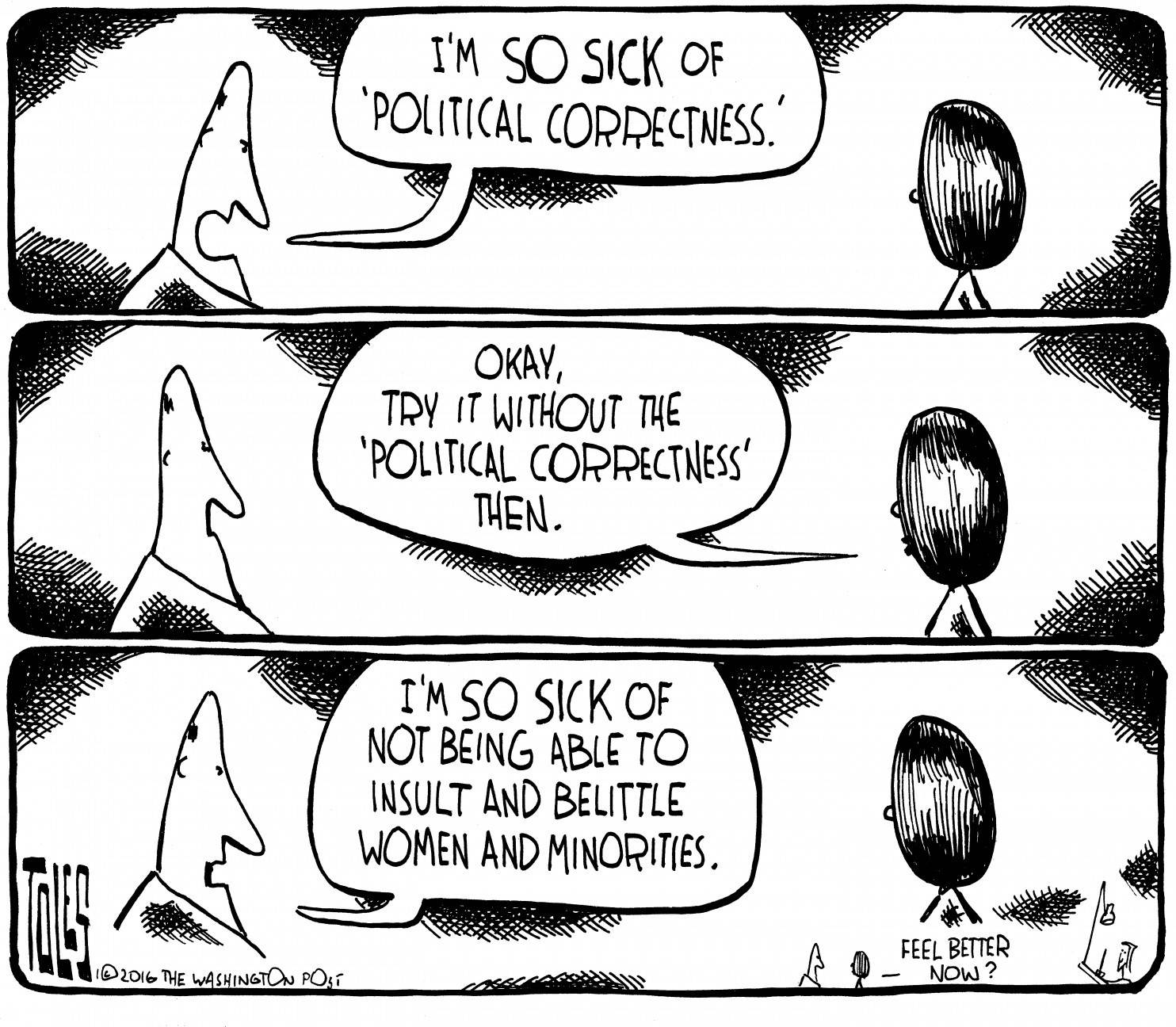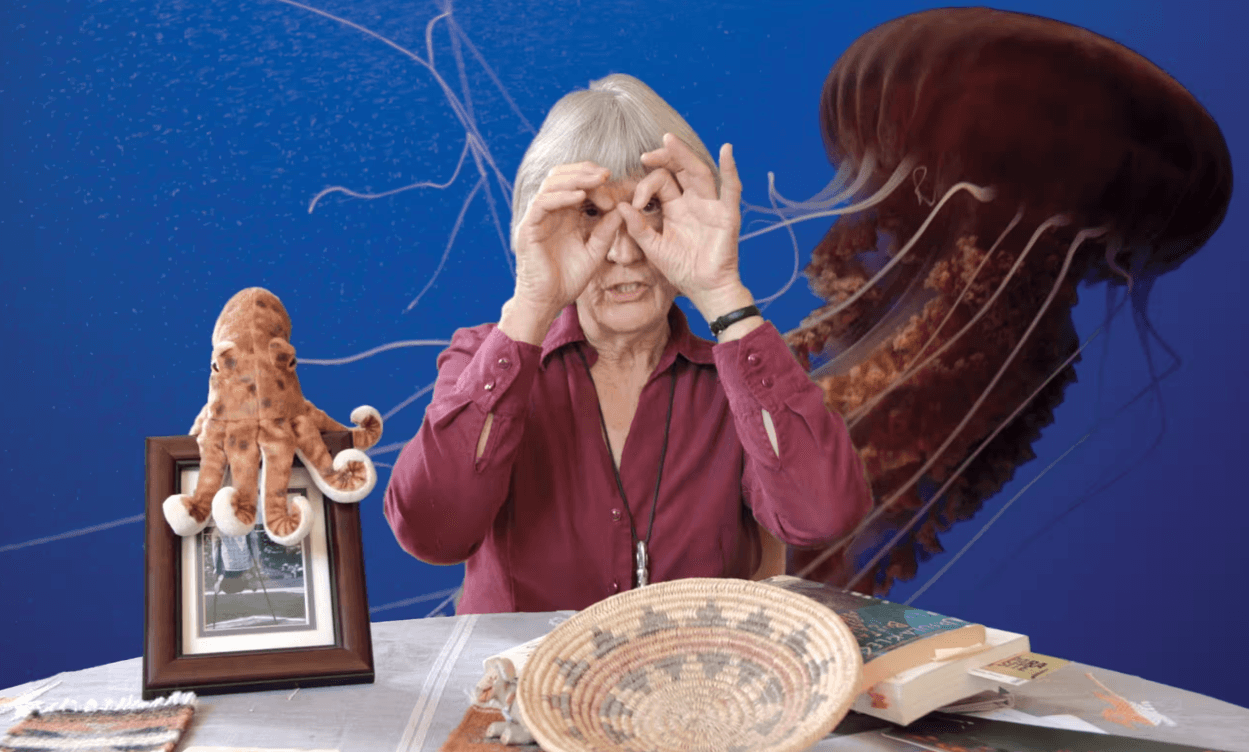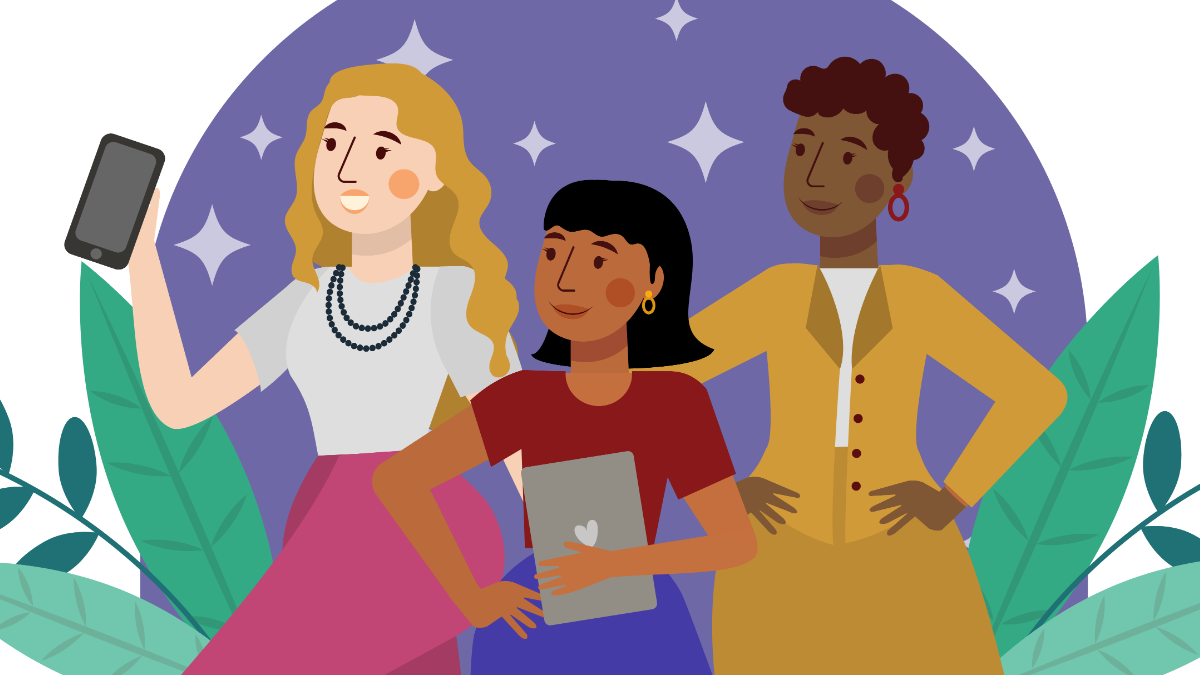Let’s begin with what political correctness is in its most raw state. According to the Oxford Dictionary, political correctness is, “The avoidance of forms of expression or action that are perceived to exclude, marginalize or insult groups of people who are socially disadvantaged or discriminated against.”
So most people might think that this is a special snowflake response to people who don’t necessarily agree with them because “freedom of speech” exists. However, freedom of speech doesn’t mean you can verbally attack people online or offline without facing any consequences, which is why people often seem to confuse the two.
The Right to Freedom of Speech and Expression, guaranteed by the Constitution of India, has clearly set restrictions on freedom of speech and as such, makes it more sensitive to the problems minority groups face in the country up to a certain extent. So, in this context, you can’t say anything you want to say and claim that it is under your right to freedom of speech due to the vast restrictions made by the Constitution, on grounds of decency and public order.
Now, with this in mind, we can further go on to talk about why political correctness is a necessity in this world that we live in.
freedom of speech doesn’t mean you can verbally attack people online or offline without facing any consequences.
To seem cool and approachable, people take to using the N-word which was used for centuries to dehumanize black people. Now when I try to approach my friends on why using it is wrong and at the very least insensitive they brush it off by saying “we don’t mean it that way” and justify that our British colonial past is at par with what African-American people have to face. This is somewhat of a false equivalency, especially with the current treatment of African-American people in the United States.
Other examples of false equivalency are when you see people point out heterophobia, reverse sexism or even misandry. While all these terms technically exist, they don’t actually mean the same thing as sexism, misogyny or homophobia. At its roots, all of these terminologies stem from systemic oppression, which has burrowed itself so deep in society that it is nearly impossible to not see any of these mechanisms at play in our lives.
You won’t see heterosexual people killed or abused because of their sexuality, or men killed just because they were born male or even men losing out on job opportunities because they could get married, have a child and leave the workforce to look after their child. Which is why heterophobia, misandry and reverse sexism cannot actually exist as a system used to oppress and discriminate among such sections in society.
This is why using false equivalents of terms may seem accurate to a lot of people, but in reality, it isn’t.
Also Read: Your Rape Joke is Not Funny, Period.
Another thing that is widely spread is the misinterpretation of offence made to a party. This is mostly because people usually equate getting offended to something trivial, which doesn’t matter that much. But with hate crimes against minority communities rising at a faster pace, we ought to check ourselves and see whether or not we are contributing to the very system that hurts minorities and keeps them at a disadvantage.
The most realistic example of such things are Whatsapp forwards that we get, that portray women as gold diggers, or as less intelligent than men, or as really bad drivers. The most infamous ones being about how men get stuck in marriages that suck their soul out of their bodies.
When in reality it’s women that have to deal with in-laws and the fact that many times they have to take care of their husband the way they do their children. Then there are varying cases of domestic abuse be it emotional or physical, and of course, “what would the society say if she chose to get divorced?”
jokes made at the expense of communities that have had to fight for basic human rights and decency will never be funny.
Not to mention the varying memes posted by so-called dank meme accounts that joke about domestic abuse, dowry, rape, LGBTQ+ identities and other very sensitive issues, trivializing of such situations and telling people to get over it because it’s a joke. Even though such jokes made at the expense of communities that have had to fight for basic human rights and basic human decency will never be funny.
It is these jokes that perpetuate negative stereotypes of minorities, it is these jokes that make it seem as though everything is fine when in reality it isn’t. These things are often also perpetuated in our media with politicians having thought processes from twenty years ago and movies that do just the same because that’s how they think it works.
But if people were just a little bit more aware, a little bit more informed, we’d see plots that don’t make these minorities a punch line, we’d see progressive ideas on our newsfeeds and TV shows. We’d see people being treated like human beings. Which is all we want, but to do that we need to be able to look at things from more than one perspective, we also need to be able to empathize with people and listen instead of talking over them.
Which is why we need to be comfortable with being uncomfortable, we need to challenge the status quo, so that we can help minorities prosper and exist without fear of possibly being assaulted for being born the way they were.
Also Read: The Personal Is Political: The Journey Of A Slogan
Featured Image Credit: Odyssey
About the author(s)
Here and queer. Probably watching animal videos, and vine compilations.





This article is ironically a very good example of why political correctness is not a helpful alternative to avoiding insults and bigotry. Chiefly because political correctness does nothing to address the real issue at hand: our attitudes and the hardness of our heart. And, yes, we are all guilty. All of us. Notice how the author sees political correctness as useful only when it can be applied in a very narrow sense; to avoid and stop bigoted statements directed at only a segment of the population that has historically taken such verbal abuse. But, of course, verbal abuse can and often does come from just about anywhere and toward just about anyone. Absolutely no one should have to put up with abuse of any kind. The author’s approach here is the informal fallacy known as cherrypicking in favor of the author’s own conclusions. Notice also that the above article in no way addresses truth. And there is a very good reason why. It is not the objective of political correctness to address or even seek after the truth. Indeed, it is political correctness that often insulates truth claims from open critique. Incredible that in a modern and enlightened age there are areas of study in academia who’s truth claims go virtually unquestioned for fear of reprisals. Doing so is almost certain academic suicide. Are you up for tenure? Be very careful. Do you like your job? Then shhhh. Political correctness is at it essence vacuous of truth and by extension empty of any real meaning. Perhaps those that advocate for political correctness are themselves fearful of the truth. Perhaps one of the goals of political correctness is to substitute truth for the much less offensive version of disingenuous sympathetic warmth. Can merely but forcefully changing the words that come out of our mouths make any meaningful difference in the way we treat one another? Does political correctness offer us anything close to what we need in order to treat one another with dignity? No. And it never will. Its fundamental flaw is that in the end it has managed only to control speech and the printed word. And because controlling our speech is it’s primary goal all other matters including our human dignity are at best secondary. Our human dignity is also at stake because we have ignored the primary reason we can be hostile to one another. Again, this requires a change of heart and a worldview that grounds the value of human beings as ends in themselves. As a Christian I view this human value as ontologically grounded in God.
So true!! Articles like these are all the more reason why pc should is worse than it seemss!
freedom of speech doesn’t mean you can verbally attack people online or offline without facing any consequences.?” but it literally does mean that….. freedom of speech is freedom of speech. you can argue back against someone who says offensive things but you cannot you the govt to destroy their life over it
political correctness becomes a problem when you cannot say facts just because it might be offensive to certain groups. it becomes a problem when feelings matter more than facts
certain rural places in india are still very racist and sexist in unreasonable and extreme ways and perhaps more political correctness is needed there. but in the more modern and richer areas in india theres TOO MUCH political correctness that people need to step on egg shells when they want to talk or do anything.
i mean just look at whats happening in the west. no one can say anything about the fact that a certain group of people disporportionately commits more crimes than other groups yet they keep letting those people in and hurting the locals.